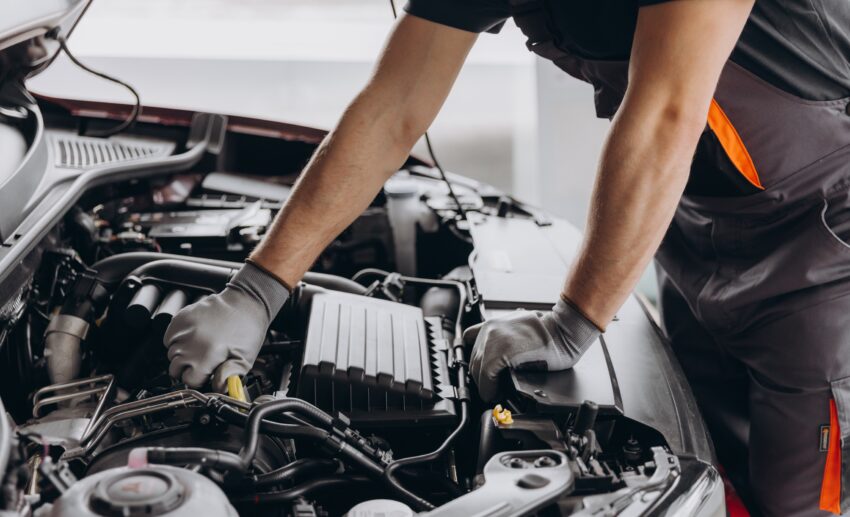Car Repairs Financing in the UK Explained
Car ownership in the UK brings the inevitability of repairs, whether due to accidents, wear and tear, or mechanical failures. The costs associated with these repairs can be unexpectedly high, leaving many car owners struggling to cover the expenses.
For some, the burden of a large repair bill can be financially crippling, especially when it arises without warning. This is where financing options for car repairs become crucial. In the UK, there are several ways to manage these costs, ensuring that your vehicle gets the necessary work done without causing undue financial stress. Understanding the available car repair loan options can help you make informed decisions that align with your financial situation, allowing you to keep your car on the road without breaking the bank.
Understanding Car Repairs Costs in the UK
Car repairs in the UK can range from minor fixes, like replacing brake pads, to major work, such as engine overhauls. The cost of these repairs can vary significantly depending on the make and model of your vehicle, the age and condition of the car, and the nature of the problem. For instance, a simple brake pad replacement might cost around £100, while more extensive repairs, like fixing a transmission, can run into the thousands. Additionally, labour costs in the UK tend to be higher in urban areas, particularly in London, compared to rural regions. Understanding these costs is essential as it helps you anticipate and prepare for potential expenses. It also underscores the importance of exploring financing options if your repair costs exceed your immediate ability to pay.
Types of Car Repair Financing Options
In the UK, several financing options are available to help cover car repair costs. One common choice is taking out a personal loan, which allows you to borrow a fixed amount to cover the repair costs, typically with a set repayment schedule. Another option is using a credit card, which offers flexibility in payments but may come with higher interest rates if not paid off promptly. Some car manufacturers and dealers offer financing plans specifically for repairs, often with competitive rates and the convenience of bundling the cost into your existing finance agreement. Additionally, payday loans and short-term financing options exist, but these should be approached with caution due to their high-interest rates and fees. For those looking for a tailored solution, specialised car repair loans are also available, designed specifically to cover repair costs with terms suited to this purpose.
Eligibility Criteria for Car Repair Financing
When considering car repair financing, it’s important to understand the eligibility criteria set by lenders. In the UK, most financing options will require a credit check, with your credit score playing a significant role in the approval process and the interest rates offered. Generally, a higher credit score will result in better loan terms. Lenders will also typically verify your employment status and income to ensure you have the ability to repay the loan. The condition and age of your vehicle may also be factors, particularly if you’re seeking financing through a dealer or manufacturer. Some lenders may only finance repairs for cars that are relatively new or in good condition, so it’s important to check these requirements before applying. Being aware of these criteria can help you prepare and increase your chances of securing the financing you need.
Pros and Cons of Financing Car Repairs
Financing car repairs offers several advantages, such as immediate access to funds, allowing you to get your car back on the road quickly without waiting to save up the money. It also provides the flexibility of spreading the cost over time, which can be easier to manage within your budget. However, there are potential downsides to consider. Interest rates and fees associated with financing can increase the total cost of the repairs, sometimes significantly. If not managed carefully, financing can lead to debt accumulation, especially if you take out multiple loans or use high-interest credit cards. Additionally, missing payments can negatively impact your credit score, making it more difficult to obtain financing in the future. Therefore, it’s crucial to weigh the benefits against the potential risks and choose the financing option that best suits your financial situation.
How to Choose the Right Financing Option
Choosing the right financing option for car repairs involves assessing your financial situation and understanding the terms of each option available to you. Start by evaluating your budget and determining how much you can afford to repay each month. This will help you avoid taking on more debt than you can manage. Next, compare interest rates and repayment terms across different lenders to find the most cost-effective option. It’s also important to consider the total cost of financing, not just the monthly payment, as some loans may have lower payments but longer terms, resulting in higher overall costs. If you’re unsure which option is best, seeking advice from a financial advisor can provide clarity. They can help you understand the fine print and ensure that you make a decision that aligns with your long-term financial health.
Tips for Managing Car Repairs Costs
To manage car repair costs effectively, consider proactive measures such as regular maintenance, which can help prevent costly breakdowns. Keeping up with routine checks like oil changes, tyre rotations, and brake inspections can extend the life of your vehicle and reduce the likelihood of major repairs. When repairs are necessary, it’s wise to shop around and get multiple quotes from different garages to ensure you’re getting a fair price. Additionally, explore whether your car’s warranty or insurance policy covers any of the repairs. Some warranties cover specific components, while insurance might cover repairs resulting from accidents. Finally, consider building an emergency fund specifically for car repairs. Setting aside a small amount each month can help you avoid the need for financing in the future, giving you peace of mind that you’re prepared for any unexpected expenses.
Conclusion
Car repair financing in the UK provides a valuable safety net for drivers facing unexpected repair costs. With a variety of options available, from personal loans to dealer financing, UK car owners can find solutions that fit their financial situation and ensure their vehicles remain roadworthy. However, it’s essential to approach financing with caution, understanding the potential long-term costs and ensuring that you choose an option that is manageable within your budget. By staying informed about the costs of repairs, exploring all available financing options, and maintaining good financial habits, you can navigate the challenges of car ownership more smoothly and avoid unnecessary financial strain. Ultimately, thoughtful planning and careful decision-making can make the difference between a repair bill that feels like a burden and one that is a manageable part of car ownership.






